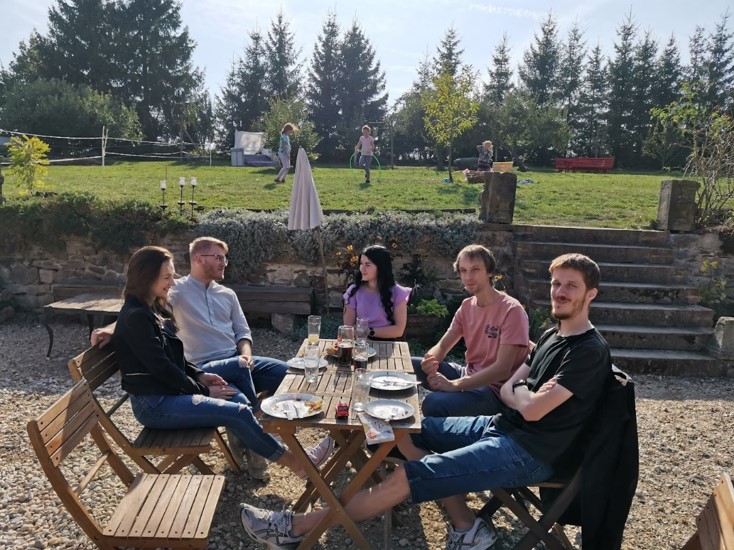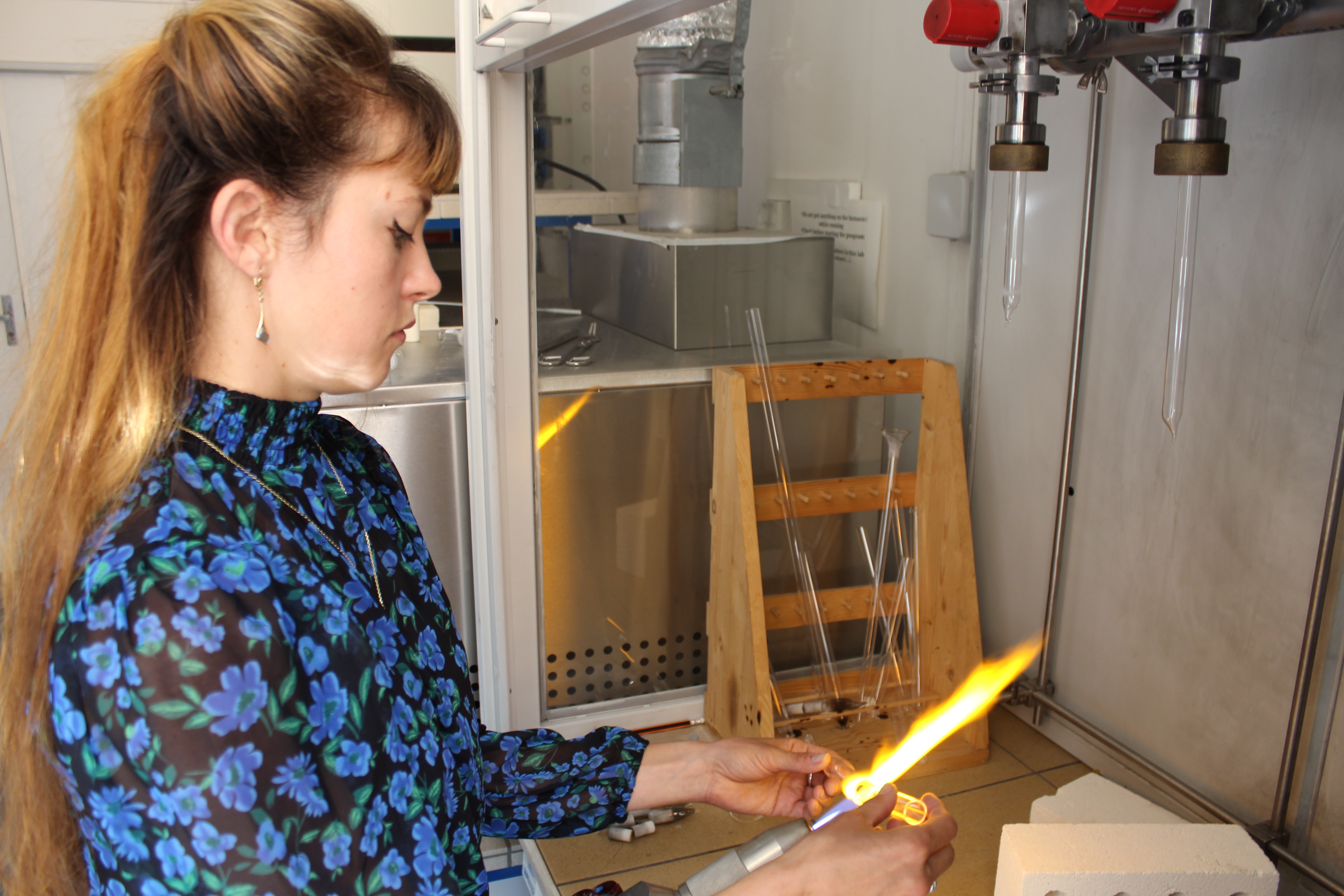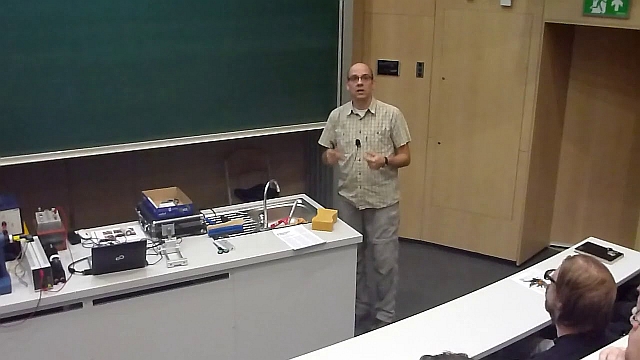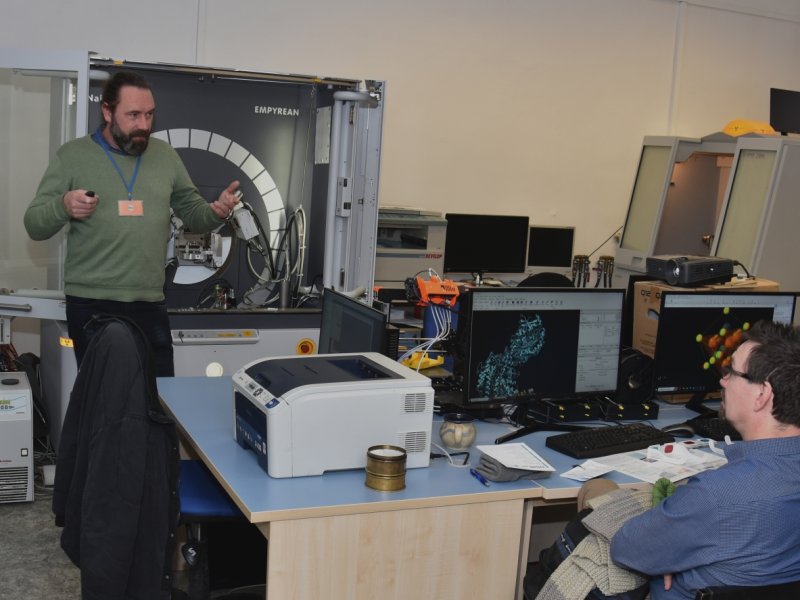The Department of Condensed Matter Physics offers students the opportunity to engage in currently solved scientific issues at the world level, within the framework of all types of work - student scientific projects or bachelor's, master's and doctoral theses. The possibilities of the work are both theoretical and experimental in nature.
Students at the department also participate in international cooperation, conducting experiments not only in the department's modern and well-equipped laboratories, but also at large international facilities, such as sources of synchrotron radiation and neutrons, e.g. in Grenoble. They participate in seminars, where foreign experts are often invited, and can go on internships abroad.
 What will the study bring to me?
What will the study bring to me?
-
-
-
-
-
-
- Participation in solving interesting problems of contemporary science in the field of solids (scientific focus of the department)
- Work in a team of experienced scientists and colleagues from among older students
- Working with top-level experimental equipment
- A number of experiments taking place in foreign institutions (including synchrotrons and neutron sources)
- In addition to the professional side, there are also regular informal collective meetings
-
-
-
-
-
What does the student life look like?
- Our students become our welcome colleagues in the true sense of the word. In the first phase, students get to know the methods used - experimental or
- theoretical. From the beginning, students learn to work independently with modern scientific instruments
- As part of the specialization, they get to know the specifics needed to solve the given problem (project, B.Sc. thesis,...), or to say - "methods that they can't do elsewhere"
- After evaluation, the obtained data become not only part of the solved thesis, but can also be the subject of presentation at (mostly foreign) conferences and peer-reviewed scientific journals
What will be the benefit of completing the program at DCMP?
Graduates of the program have a broad knowledge of the fundamentals of quantum theory, thermodynamics and statistical physics of condensed systems and relevant computational methods. They can describe the structure of these substances in various forms, their mechanical, electrical, magnetic and optical properties. They have an overview of a number of experimental methods for characterizing the structure, composition and properties of condensed substances, such as diffraction, spectroscopic and microscopic methods, and can use them practically. In general, this field is very close to practice, and many research results find practical application. On the other hand, students also acquire the theoretical foundations of the field.
- Irreplaceable experience from working on current topics of contemporary research
- Valuable contacts and ties to laboratories and colleagues in the field and outside our republic
- Take a look at some of the successful graduates of our department
Who are our supervisors and teachers?
A number of experienced teachers work within our department, cooperation with experts in the Institute of Physics of Academy of Sciences and other scientific institutions is quite common - to say you will be in good hands :)
So which study program should I choose?
DCMP is the department guaranting the study programme Physics of condensed systems and materials, on which also other departments participate: Dept of Physics of Materials, Dept of Macromolecular Physics and Dept of Low-Temperature Physics. Primary focus area of the programme in our department is Physics of atomic and electronic structures. The department currently also guarant the teaching of one of the basic lectures of bachelor programme Atomic physics and electronic structure of matter. In bachelor programme a block of lectures Physics of condensed systems and materials.

Study programme Physics of condensed systems and materials
The programme is devoted to experimental and theoretical study of properties of condensed systems, their microphysical interpretation and possibilities of applications with respect to current development of materials research. Physics of condensed matter is rather broad discipline and it is unique by its ability to investigate microscopic behavior of matter with experimental and theoretical techniques. This allows deep understanding of physical basis of materials and their potential applications. Recently, condensed matter physics achieved remarkable advances in understanding of new materials (e.g. topological insulators, graphene). These materials have potential applications in areas like quantum computing technique and energy storage.
Graduates of the programme
Graduates of the programme posses wide knowledge of fundamentals of quantum theory, thermodynamics and statistical physics of condensed systems and related computing methods. They are able to describe the structure of these compounds, its mechanical, electrical, magnetical and optical properties. They have a good overview on a number of experimental methods of characterization of structure, composition and properties of condensed compounds (as diffraction, spectroscopic and microscopic methods) and they are able to use them in practice. In general, this field is very close to the practice and many results of research can find practical applications.
Students in department
Students in department take part in international collaboration, perform experiments not only in modern and well-equipped laboratories of the department but also at large international facilities as sources of synchrotron radiation and neutrons, e.g. in Grenoble. Students can work on studentské projects, bachelor, master and doctoral thesis. They participate at seminars where ofthe international experts are invited, they can also travel abroad for longer stays.
Doctoral study
this involves two programmes - P4F3 Physics of condensed compounds and and materials research and P4F13 Physics of nanostructures and nanomaterials.
Graduates after study
There are many possible positions for graduates. For example in basic physical, chemical and biomedical research, universities, laboratories of applied materials research, testing laboratories, institutes dealing with development and modification of materials, environment etc.


